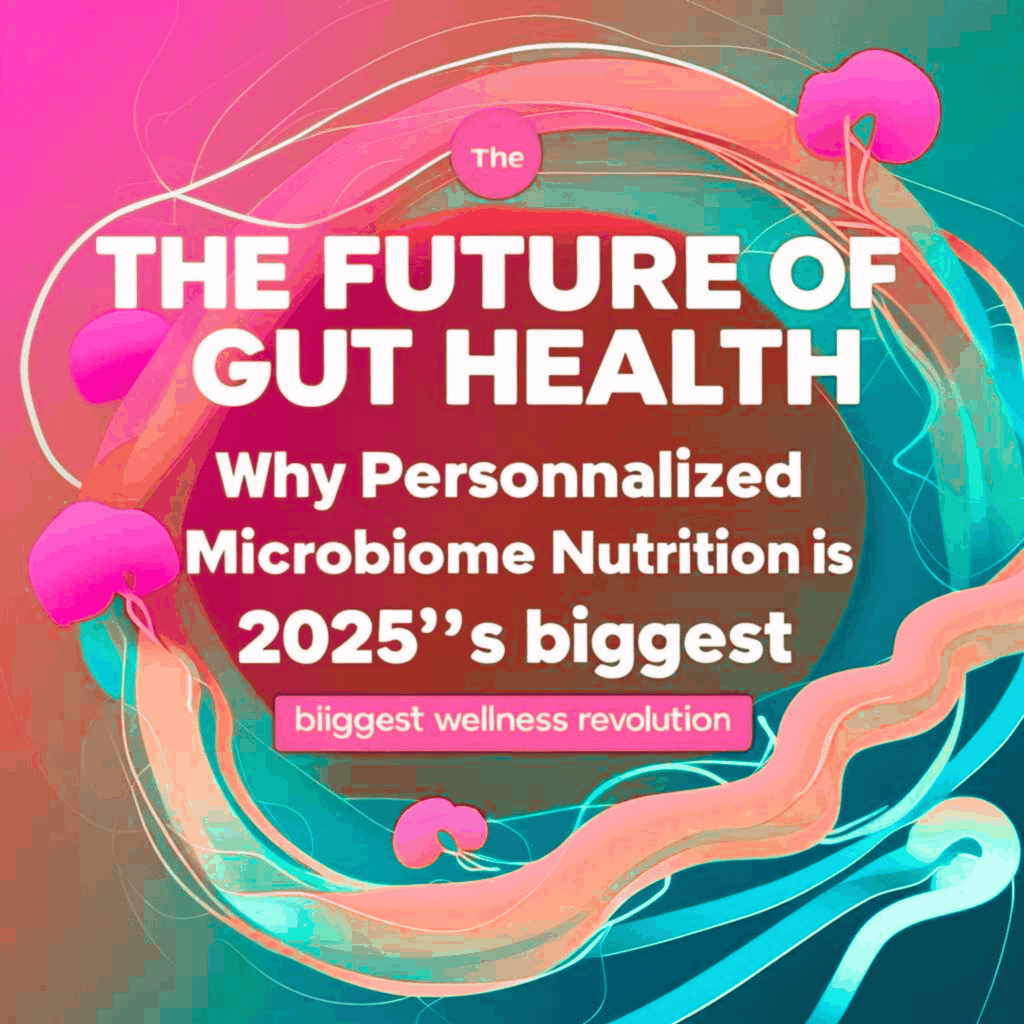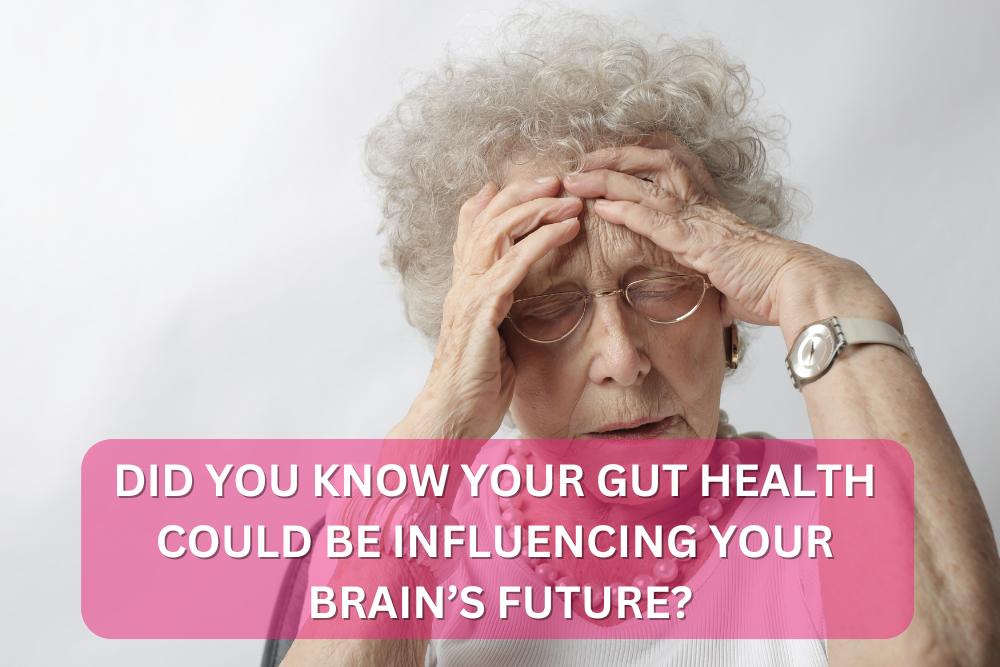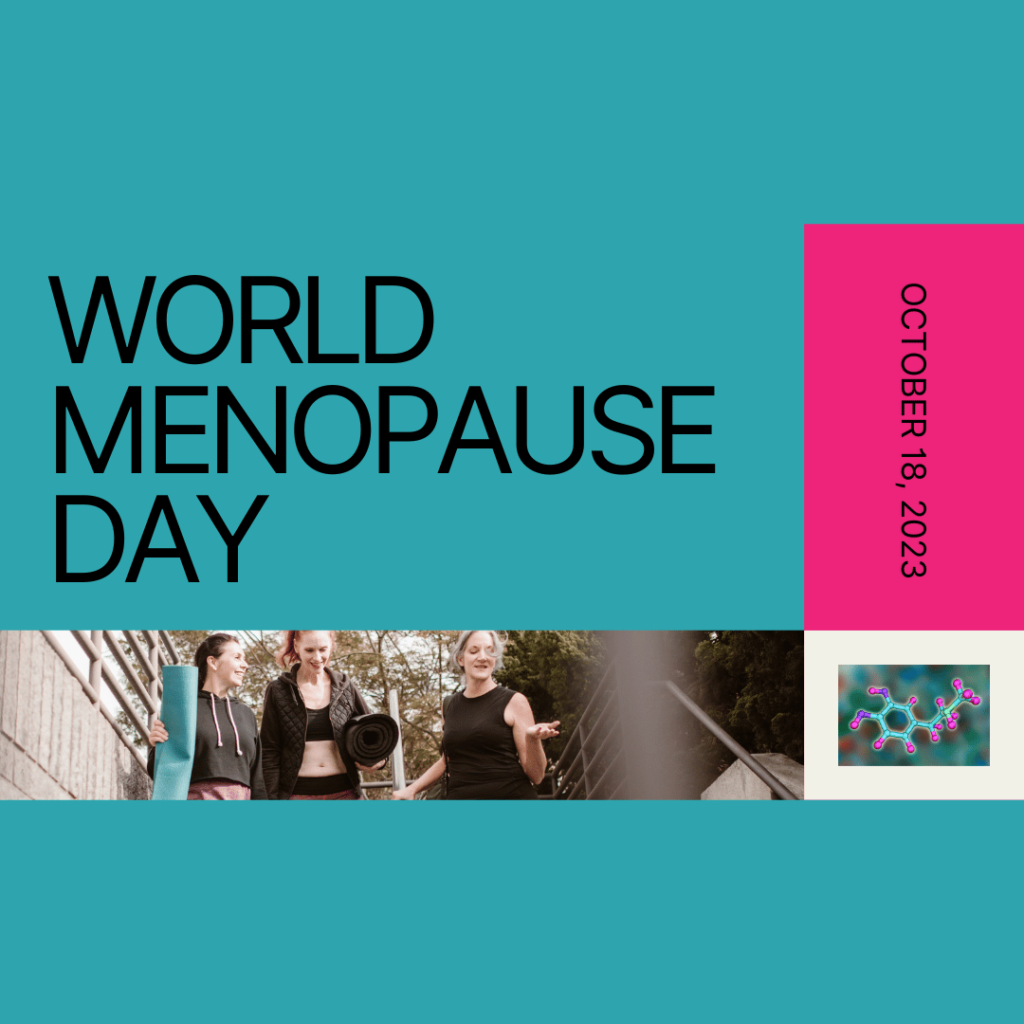The Future of Gut Health: Why Personalised Microbiome Nutrition is 2025’s Biggest Wellness Revolution

The Future of Gut Health: Why Personalised Microbiome Nutrition is 2025’s Biggest Wellness Revolution Are you struggling with unexplained fatigue, digestive discomfort, or mood swings that seem to have no clear cause? The answer might lie in the trillions of microorganisms living in your gut. As we move through 2025, personalised microbiome nutrition has emerged as the most significant breakthrough in nutritional science, transforming how we approach digestive health and overall wellbeing. What Makes Personalised Microbiome Nutrition So Revolutionary? Ongoing research reveals that no two gut microbiomes are identical – much like fingerprints. What works brilliantly for your friend’s digestive issues might not be the right approach for you. This realisation has sparked a revolution in how nutrition professionals approach gut health treatment.The latest studies show that personalised microbiome interventions can improve immunity by up to 20% compared to generic approaches. This isn’t just about reducing bloating or improving digestion – we’re talking about enhancing your entire immune system, mental clarity, and energy levels. The Science Behind Your Unique Gut Ecosystem Your gut microbiome consists of over 1,000 different species of bacteria, each playing a crucial role in: Immune function – 70% of your immune system resides in your gut Mood regulation – The gut-brain axis directly influences mental wellbeing Nutrient absorption – Certain bacteria help extract vitamins and minerals from food Inflammation control – A balanced microbiome reduces chronic inflammation Key Trends Shaping Gut Health in 2025-26 1. Precision Nutrition Based on Microbiome Testing Gone are the days of one-size-fits-all dietary advice. Advanced microbiome testing now allows nutrition professionals to create truly personalised nutrition plans based on your unique bacterial composition. 2. Next-Generation Prebiotics and Probiotics The focus has shifted from generic probiotics to targeted strains that support your specific microbiome needs. Prebiotic fibres are taking centre stage as the fuel that feeds your beneficial bacteria. 3. Food as Medicine Approach Rather than relying solely on supplements, the emphasis is on using whole foods to naturally cultivate a diverse and resilient gut microbiome. Signs Your Gut Microbiome Needs Attention Do any of these sound familiar? Persistent digestive discomfort or irregular bowel movements Frequent colds or infections Unexplained fatigue or brain fog Mood swings or anxiety Food intolerances that seem to multiply Difficulty maintaining a healthy weight These symptoms often indicate an imbalanced gut microbiome that could benefit from personalised nutritional intervention. The Power of Professional Guidance Whilst the internet is full of generic gut health advice, working with a qualified nutrition professional who understands the complexity of microbiome science can make all the difference. A personalised approach considers your unique bacterial profile, health history, lifestyle factors, and specific symptoms. Supporting Your Gut Health Journey One evidence-based supplement that consistently shows benefits for gut health is high-quality magnesium. Magnesium plays a crucial role in supporting the gut-brain connection and promoting healthy digestive function.Better You Original Magnesium Spray offers excellent bioavailability through transdermal absorption, making it particularly beneficial for those with digestive sensitivities. Simply spray 10 times onto your abdomen before bed and massage in – it’s that simple! Your Next Steps Towards Optimal Gut Health Understanding your unique microbiome is the first step towards transforming your digestive health and overall wellbeing. Rather than guessing which foods and supplements might help, a personalised approach based on scientific assessment can provide the targeted support your gut needs.Ready to discover what your gut is trying to tell you?Our comprehensive Gut Health Course provides you with the knowledge and tools to understand your digestive system, identify your unique triggers, and create a personalised nutrition plan that works specifically for you.This self-paced programme includes: Step-by-step modules covering the gut-brain connection Personalised dietary guidelines and recipes Symptom tracking tools and shopping lists Ongoing support to ensure lasting results Don’t let digestive issues control your life any longer. Join hundreds of others who have transformed their gut health and reclaimed their energy, mood, and overall wellbeing.Enrol in our Gut Health Course today and start your journey towards optimal digestive wellness. Ready to take control of your gut health? Book a personalised consultation with our expert team at 121 Dietitian. With over 30 years of experience in nutrition science, we’ll help you create a targeted plan that works specifically for your unique needs. If you want to book your programme TODAY we would love to help you. You can book a 121 Dietitian Programme today by clicking on the link below Book Now
How Your Digestive Health May Impact Alzheimer’s Disease Risk

Discover the fascinating link between your gut health and cognitive function from award-winning UK dietitian Gillian Killiner. Drawing from 30 years of clinical experience and groundbreaking research, learn how specific gut bacteria influence brain health and may help prevent Alzheimer’s disease. From beneficial bacterial strains to practical dietary strategies, this evidence-based guide reveals how to support your cognitive wellness through gut health. Featuring real client success stories and actionable steps you can take today. Book your consultation at 121 Dietitian’s Hollywood clinic or online to start your journey toward optimal brain health through personalised nutrition.
Diet and Eyesight :The Vital Connection

Today, I am going to explore a topic that’s often overlooked: the relationship between Diet & Eyesight. It is so important and I can’t believe I haven’t talked about it before! Your eyes are a windows to your overall health and can really impact your quality of life if you find yourself with an eye related health problem. Welcome if you are new here to 121 Dietitian. I’m Gillian Killiner, founder of 121 Dietitian, and I have been writing blogs for many years on various topics alongside my clinical work. So hopefully you will find some information relevant or interesting to you. Understanding the Basics – Diet & Eyesight So what does the eye do? The human eye is a complex organ. It works like a camera by capturing and processing light, which is then transformed into visual information that our brain can understand. Its well-being relies on a variety of nutrients to function optimally. These nutrients can be obtained through a balanced diet, and they play a crucial role in maintaining good eyesight throughout your life. So lets look first at foods that could impact negatively on your eye health: 1. Sugary Drinks Sugary fizzy drinks, energy drinks, sweet tea, and lemonade, high fructose syrups. These beverages are often loaded with sugar, and excessive sugar consumption can increase your risk of developing type 2 diabetes and heart disease. These conditions, in turn, can lead to eye problems like diabetic retinopathy and age-related macular degeneration (AMD). Just to put things in perspective, a single soft drink can contain a whopping 37 grams of sugar! So, it’s wise to be mindful of how many sodas you consume daily. 2. Fish & Shellfish Fish and shellfish are generally considered healthy sources of protein and essential nutrients. However, they do contain small amounts of mercury. While this isn’t a major concern for most people, certain groups are more susceptible to health problems related to mercury exposure. This includes pregnant women, nursing mothers, and children. For these individuals, it’s recommended to limit fish intake to 2 portions per week to reduce the risk of eye damage. 3. Bread Products Bread products, such as white bread and pasta, are daily dietary staples for many of us. However, they contain simple carbohydrates that are digested quickly, leading to rapid spikes in blood sugar levels. This can contribute to chronic inflammation, a condition linked to AMD. If you’re worried about the impact of bread products on your eye health, consider limiting your consumption and exploring whole-grain alternatives. 4. Prepackaged Foods Prepackaged foods are convenient but often not healthy and frequently contain high levels of sodium, which can lead to high blood pressure. Elevated blood pressure, can damage your retina and result in a condition known as hypertensive retinopathy. To reduce your sodium intake, look for “low sodium” labels on canned goods, soups, and sauces when food shopping, but more importantly rethink the amount you use of these products and consider how you can cook with natural ingredients when possible. 5. Processed Meat Processed meats like bacon, deli meats, sausages are loved by many but can be high in sodium as well. Beyond contributing to hypertensive retinopathy, excessive sodium intake can cause choroidopathy, characterized by fluid buildup under the retina, and neuropathy, which can lead to blockages in blood flow. So the message here is to watch your salt and sugar intake as this can go a long way in preserving your eye health. So what can you eat instead? Thankfully there is an abundant variety of foods and fluids that can assist and nourish the eyes. Key Nutrients for Healthy Eyes Preventing Age-Related Eye Conditions: Consuming a diet rich in antioxidants, such as vitamins C and E, can help protect your eyes from the oxidative stress associated with aging and reduce the risk of cataracts and AMD. Maintaining Eye Moisture: Omega-3 fatty acids help keep your eyes moist and reduce the risk of dry eye syndrome, which can be uncomfortable and affect your vision. Enhancing Night Vision: Adequate intake of vitamin A ensures your eyes can adapt to low-light conditions, which is crucial for night vision. Shielding Against Harmful Light: Lutein, zeaxanthin, and beta-carotene act as natural filters, protecting your eyes from harmful ultraviolet (UV) and blue light. Promoting Eye Tissue Health: Nutrients like zinc support the health of eye tissues and may reduce the risk of conditions like macular degeneration. Conclusion – Diet & Eyesight Our eyes are invaluable, and protecting our vision should be an integral part of our daily life. A diet rich in the right nutrients can play a pivotal role in maintaining and safeguarding eyesight. By incorporating foods rich in vitamins A, C, E, omega-3 fatty acids, zinc, and carotenoids into your daily meals, you are investing in the long-term health of your eyes. At 121 Dietitian, we understand the importance of nutrition in promoting overall well-being, including eye health. If you’d like personalized guidance on optimizing your diet for better eyesight or any other nutritional concerns, don’t hesitate to reach out. Remember, a nutritious diet isn’t just about looking good; it’s about seeing the world around you safely for years to come. If you want to book your programme TODAY we would love to help you. You can book a 121 Dietitian Programme today by clicking on the link below CONTACT TODAY Vitamin A: This is perhaps the most well-known nutrient for eye health. Vitamin A helps maintain the health of your cornea, the outermost layer of your eye. A deficiency in vitamin A can lead to night blindness and other vision problems. Vitamin A is found as retinol in meats, dairy, eggs and Beta-carotene in fruits and vegetables. Vitamin C: Found in fruits and vegetables like oranges, strawberries, and bell peppers, vitamin C supports the blood vessels in your eyes and can help prevent cataracts and age-related macular degeneration (AMD). Vitamin E: Nuts, seeds, and leafy greens are rich sources of vitamin E, which is known for its antioxidant properties. Antioxidants
Unlocking the Secrets of Perimenopause and Beyond with Diet and Nutrition

Discover expert insights from renowned Dietitian Gillian Killiner. Learn how diet and nutrition empower women during perimenopause and beyond. Diet and Nutrition: Your Best Allies in Perimenopause and Beyond It’s crucial to recognize the profound impact that diet and nutrition can have on a woman’s journey through perimenopause and the years that follow. Who better to shed light on this topic than Gillian Killiner, a globally respected dietitian, who at 50 + yrs with an autoimmune disease, stands as a testament to the power of a personalised approach? Why Does Diet Matter During Perimenopause and Menopause? Perimenopause, is the term used for the transitional phase before menopause. This for many women comes with a suckerpunch of challenges such as hormonal fluctuations, weight gain, low mood and increased risk of osteoporosis. Definately honing in on a well-balanced diet can significantly assist these symptoms and promote overall physical and mental well-being, but this is just one of several areas that may need to be revisited and tweaked or indeed overhauled and this is something that we offer as part of our programmes to our patients @ 121 Dietitian. As many ladies find out, no one diet suits all, so we design programmes to ensure they work with each individual with their specific needs. Understanding the Science Behind Perimenopause Challenges Perimenopause is a natural biological process that every woman goes through as she approaches the end of her reproductive years. This phase, typically starting in a woman’s mid-40s, but can be earlier than this. If much earlier than this is different and called premature ovarian failure. Perimenopause is characterized by a series of hormonal fluctuations as the body gradually ceases to produce eggs for fertilization so reproduction stops. These hormonal changes, bring about a host of challenges that need to be accepted and suitably addressed. 1. Hormonal Fluctuations: Estrogen, is one of the primary female sex hormones, and plays a pivotal role in regulating the menstrual cycle and maintaining reproductive health. It is the most talked about and promoted hormone at this stage of life. Interestingly during perimenopause, progesterone declines before oestrogen starts to fluctuate, and this is an extremely important part of the hormonal picture often overlooked. From years of researching and teaching about menopuase and diet Gillian is always astounded at how other hormones including progesterone and testosterone are left out or not considered when checking in with women, blood levels and their symptoms, oestrogen the focus hormone and the following areas selected below highlight this. 2. Weight Gain in Menopause: Weight gain is a common concern during perimenopause and can be attributed to several factors, including hormonal changes, decreased metabolism, and lifestyle shifts. Again in the literatue the focus is on Estrogen, and how it is influences body composition and fat distribution. “As estrogen levels decline, women may experience an increase in abdominal fat. A study published in Obstetrics & Gynecology 2 delved into the hormonal mechanisms affecting body composition during perimenopause, emphasizing the significance of a healthy lifestyle, including diet and exercise, in managing weight gain”. Nothing about how progesterone actually assisting metabolic function, mood, sleep and menopausal weight gain. 3. Increased Risk of Osteoporosis in Menopause: Another Estrogen focus is on bone health and how it is essential for maintaining bone density and strength. “During perimenopause, the reduction in estrogen levels can accelerate bone loss, leading to osteoporosis—a condition characterized by fragile and porous bones. Research studies, such as those published in the Journal of Bone and Mineral Research 3, have extensively investigated the link between estrogen deficiency and osteoporosis, emphasizing the importance of adequate calcium intake, vitamin D supplementation, and weight-bearing exercises to support bone health during and after perimenopause”. No mention of Progesterone when we know Progesterone, can promote the production of osteoblasts which are required to effect new bone formation. Natural progesterone has been shown to stimulate osteoblast-mediated new bone formation which is required to prevent and reverse osteoporosis Here is a video on osteoporosis you might find helpful. Gillian is passionate on getting the correct information to her patients and for the past 15 years been highlighting the need to address more than just oestrogen depletion. In fact she helps 100’s of women each year with hormonal issues including, cortisol, testosterone, insulin resistance, oestrogen dominance and more. Understanding these physiological changes at a scientific level underscores the critical need for proactive measures to support women’s health during perimenopause, menopause and after. This blog has only scratched the surface. A balanced lifestyle and a diet rich in essential nutrients, along with regular physical activity, not only alleviates these challenges but also ensures women can embrace this natural life transition with confidence and vitality. By leveraging the insights provided by scientific research, women can make informed choices about their diet and lifestyle, ensuring a smoother journey through perimenopause and beyond. Something that our mothers and grandmothers didn’t have the luxury of. Gillian Killiner’s Top Expert Tips: FAQs About Diet and Perimenopause: Q1: Can diet really impact menopausal symptoms? A1: Absolutely! A balanced diet can help manage weight, reduce hot flashes, and support emotional well-being during this phase. Q2: Are there specific foods to avoid during perimenopause? A2: Limit caffeine, alcohol, and super spicy foods as they can trigger hot flashes and disturb sleep, subtle spices can be antinflammatory. Q3: Is exercise important alongside a balanced diet? A3: Yes, regular exercise complements a healthy diet, enhancing overall fitness, builds muscle, bone health, reduces fat and enhances mood stability. The Importance of Nutrition Beyond Menopause: With aging, the body’s nutritional requirements evolve however we should allow Menopause to mark the beginning of a new chapter. It can be scary for all women. Gillian Killiner -” for me in my 50’s with no functioning thyroid and a very busy and hectic life, I am seeing the start of physical changes that I will monitor and maybe update you on! So far I have not changed in clothes size from size 8 since I was age 18 so for
Celebrating World Porridge Day: A Nutritional Delight! 🥣

Porridge – We Love Ya!… Porridge, the ultimate comfort food, is deservedly taking the spotlight on October 10th as we celebrate World Porridge Day! As a leading Dietitian, I’m thrilled to share the wonders of this versatile dish with you. So lets celebrate health together with why you should eat poridge! Why Porridge Rocks: Nutrient Powerhouse: Porridge is packed with essential nutrients like fibre, vitamins, and minerals, making it a perfect start to your day [1]. Heart Health: Its soluble fiber content helps lower cholesterol levels, promoting a healthy heart. Did you know porridge oats are wholegrains and contain a soluble fibre called beta-glucan, which can help lower your cholesterol level if you have 3g or more of it daily, as part of a healthy diet. (A 40g serving of porridge oats contains 2g of beta-glucan.) Energy Boost: Porridge provides a steady release of energy, keeping you fueled and focused throughout the day – no reaching for the snacks straight after breakfast. Customizable: Sweet or savoury -using fruits, nuts and spices, you can personalize your porridge, add to soups/sauces making it a versatile and tasty treat. Celebrate with a Porridge Party! Let’s turn World Porridge Day into a memorable event! Gather your friends, schoolmates, or community members for a Porridge Party. Share recipes, swap ideas, and savor different porridge variations. Don’t forget to capture the moments and spread the joy on social media using #PorridgeDayCelebration! A Porridge Recipe we at 121 Dietitian love… Oat Fibre Pancakes 1 large ripe banana 1-2 eggs depending on size 1/4 cup (can use gluten-free) oats (blitz in a blender for smoother flour consistency) 1tbsp of milled flaxseed 1 tbsp chia seeds pinch of salt pinch of cinnamon 1 spoon almond butter (optional) butter for cooking InstructionsMash the banana with a fork, break and whisk in the eggs, oats, salt seeds and cinnamon until smooth. Add the nut butter and swirl into the batter.Heat a teaspoon or oil/butter in a pan over medium-low heat. Cook for about 2 minutes, on medium heat until set. Cook on the other side for another 30 seconds.Serve with berries. Enjoy! Let’s make this World Porridge Day a celebration of health, taste, and togetherness! Happy porridge-making, everyone! 🌐 Sources AwarenessDays – World Porridge Day 2023 NetworkLeeds – Celebrate World Porridge Day with Mary’s Meals National Today – World Porridge Day Twinkl – World Porridge Day 2023 | Teaching Resources Chelmsford Star Cooperative – Celebrate World Porridge Day
The Downside of Calorie Counting: Focusing on Long-Term Health and the Role of Anti-Inflammatory Foods
Calorie Counting – In my decades of experience as a dietitian, I’ve seen many diets come and go. A popular one that never seems to go out of favour is calorie counting. This is continueally promoted as the ultimate solution to weight loss and better health and I see it every day pushed by companies, PTs etc wanting to sell you a plan. For some this is right up their street, others maybe a useful starting point and for the rest a numerical nightmare leading them into a bad relationship with food. I have observed time and time again that focusing on counting calories can be detrimental to our well-being and you can see more about this in my YouTube video or click on the image below. As this is typically the time of year when panic sets in advance of the summer holidays and crash diets are underway I thought I would return to this topic. In this blog, we will explore why calorie counting is not always recommended and how focusing on anti-inflammatory foods and the correct ratios can promote long-term health and longevity. Conclusion While calorie counting may offer short-term benefits in weight management, it often neglects the importance of nutritional quantity and quality, individual variation, and psychological well-being for the long-term. A good example is to take a low kcal cake bar, it may be 100 calories, but it fails to offer any nutritional value instead likely highly processed with a long list of ingredients and inflammatory. A bowl of berries with natural dairy topping – yoghurt/cream however may have more calories but also provides essential nutrients like calcium, vitamin C, polyphenols and fiber making this a better choice for a dessert for your body. Enjoying good quality choices ensures you are physcially and mentally optimised. As an expert dietitian, I am passionate about getting this right for you for life and I teach that long-term health and longevity are best achieved by focusing on anti-inflammatory foods and adopting a holistic approach to nutrition. By emphasizing whole, nutrient-dense foods, flexibility, kindness to ourselves and considering the broader aspects of well-being, we can relax around foods and enjoy a healthier and more fulfilling life. So, what to do next or for anything else.. If you are needing help with your diet and health, activity, sports performance we can assist you with this. Maybe you wish to change your eating habits, stop tracking or need help optimising the foods you eat and are not sure what programme to select, please do contact us. We would love to help you or your family and friends with any nutrition-related queries big or small. If you want to book your programme TODAY we would love to help you. You can book a 121 Dietitian Programme today by clicking on the link below If you have enjoyed this blog we would love you to share this with your family and friends on your social media channels. Do visit our YouTube Channel for more on keeping your health optimal. If you are interested in how I overcame my Thyroid Autoimmune Condition do check out the About section below Before you go please check out our 121 Dietitian Shop created specifically for optimising your health. Gillian x